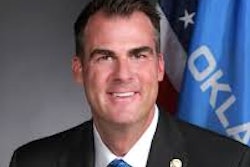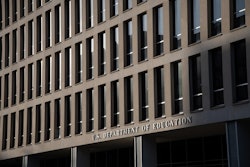NEW ORLEANS – When Ronald Mason resigned as president of Jackson State University last year to take the helm of Louisiana’s Southern University System, he was the focus of a bitter debate over a proposed merger of some of Mississippi’s historically Black universities. He was against it; then he was for it – sort of. Mason came up with his own plan, but opponents leveled all proposals before they got traction.
Now, just months after he began his tenure at Southern, Mason is once again in the middle of a merger imbroglio. Just as Gov. Haley Barbour had floated the idea with the Mississippi legislature, Louisiana Gov. Bobby Jindal recently announced he is proposing a study of merging historically Black Southern University at New Orleans with the larger, nearby University of New Orleans, which has predominantly White enrollment. SUNO is in the Southern System and UNO is in the Louisiana State University System.
The governor is asking the Louisiana Board of Regents, which oversees higher education in the state, to determine the feasibility of merging the two institutions into one and possibly moving the new entity into the state’s other higher education bureaucracy — the University of Louisiana System.
“It is important that this study remain an objective analysis, driven by facts and data, predicated on the best interests of students,” Jindal said in a press statement. “We will wait until we receive the completed study before formulating or recommending any legislative proposals for the upcoming session.” In the press release, the governor also noted that SUNO has a 5 percent graduation rate and UNO has a 21 percent rate.
Dr. Joseph Bouie Jr., president of SUNO’s faculty senate and a former chancellor of the university, says the study is the culmination of years of efforts by state officials to shut down SUNO — efforts that Bouie says have included withholding FEMA funds for repairs to buildings – “and we are still back to 85 percent of pre-Katrina enrollment because this community needs SUNO despite everything that is being done to discourage students from coming here.”
Buoie says, “Not a single faculty member – to a person – not one, is in favor of it.” He said a 2006 study by the Board of Regents concluded the school should not merge because of their distinct missions and roles.
Meanwhile, Mason already had drawn criticism when he said in an October speech that he favored a possible merger of the two schools – with UNO becoming part of the predominantly Black Southern System.
He still stands by that idea. “If UNO wants to change systems, there is already a system in New Orleans, Southern. Such a move would keep both schools open, facilitate academic and fiscal efficiencies and strengthen the Southern system,” Mason said in a written statement to Diverse.
Regarding the governor’s study, Mason says, “If the study recommends his idea, I assume both schools would be closed and a new school would take its place. I do not think closure of SUNO (or UNO) is a good idea.” Mason added that he expects the Southern system’s board of supervisors to draw the same conclusions at a special meeting on Feb. 4.
At UNO, Jindal’s announcement also is being met with skepticism. “First of all, is it a merger or a takeover?” University Senate chairman Dr. Neal Maroney said, posing issues that he said concern UNO faculty members.
“We’re a research university and SUNO isn’t, so how will faculty be shared? And who’s going to be in the administration?” he said.
Maroney noted there wouldn’t be a need to duplicate administrators, which could considerably reduce costs. He also noted that UNO is currently without a chancellor, since former Chancellor Tim Ryan resigned abruptly last fall, while SUNO has a chancellor, Victor Ukpolo. So Maroney wondered if there were a merger, would UNO need to hire a chancellor?
Maroney did concede that a merger could result in savings and said he supported “any reduction in administrators.”
SUNO’s director of public information, Eddie Francis, said the administration was not taking a position on the idea but waiting for the results of the study, noting that it has been proposed in the past. He did, however, comment on media reports about SUNO’s declining enrollment and its purported 5 percent graduation rate. Francis said in a written statement, “Our Fall 2010 enrollment was 3,166, up from our spring 2006 enrollment of 2,037 (our first semester back from Hurricane Katrina), a 67 percent increase.” Francis added that graduation rates for a six-year period that includes the 2005-2006 year of Hurricane Katrina are “tainted” and that the university serves a unique population that often completes college after more than six years.
Maroney agreed that recovery from the devastation of Katrina continues to affect both institutions. According to Maroney, UNO’s fall 2010 enrollment was 10,500 and has been steadily rising since Katrina. And like Francis, he said the graduation rates do not take into account the effects of the hurricane and the increase in non-traditional students.
Jindal set a March 1 deadline for the Board of Regents to present a report based on the study. Mason suggested that instead of conducting a month-long study, “We should do a thoughtful study of ways the institutions, including Delgado (community college) can work together to improve the education product and potentially save money without closing any institution.”
With all of the high-level pronouncements from the governor, administrators and public officials, students say they are feeling a bit overlooked. “Honestly, we’re not being given enough information right now,” UNO student government president John Mineo said in a written statement to Diverse, adding that students need to hear more about what a merger would entail. He also said the uncertainty of whether the institutions will exist in the future could affect enrollment.
“However, I do believe it’s too early to judge the effects of such a plan. We won’t know if this plan is for the better or worse until more details are given to us,” Mineo said.
Even if the study results in proposed legislation, a two-thirds majority in the state House and Senate would be required to enact a merger.
“We think the governor is counting votes, so it may be possible for it to pass,” Bouie said, but he said he has gathered support to file a lawsuit in federal court to block a merger if necessary.















